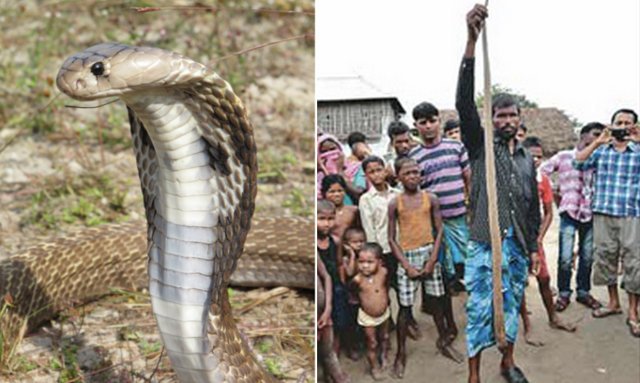
Mohammed Salmodin, a Nepali farmer who was bitten by a cobra in his rice paddy field, has killed the snake by repeatedly biting it in return.
“A snake charmer told me that if a snake bites you, bite it until it is dead and nothing will happen to you,” said Mohammed Salmodin.
He has now been discharged from hospital where he was being treated for the snake bite.
Officials say he will not be charged because the reptile was not endangered.
“When I realized that a snake had bit me, I went home to get a torch and saw that it was a cobra. So I bit it to death,” he said.

After he bit the snake to death, Mohammed Salmodin said that he went about his daily business as if nothing had happened. He says he finally agreed to go to hospital after pressure from family, neighbours and police.
The incident took place on Tuesday in a village 200 km (125 miles) south-east of Nepal’s capital, Kathmandu.
The snake he killed is reported to have been the common cobra. Nepal has a wide variety of snakes, many of which are venomous – such as the cobra.
Estimates suggest that there are 20,000 cases of snake bite in Nepal a year, most of them in the Terai southern plains, causing about 1,000 deaths, the AFP news agency reports.
Advice for victims of snake bite can vary, partly because different snakes have different types of venom.
How to react in case of snake bite:
• Remain calm
• Try to remember the snake’s shape, size and colour
• Keep the bitten part of your body as still as possible to prevent the venom spreading
• Remove any jewellery or watches from the bitten limb as it may swell
• Do not attempt to remove any clothing, such as trousers
• Seek immediate medical attention
Widely known treatments, such as the application of a tourniquet or trying to suck out the venom, are not recommended.